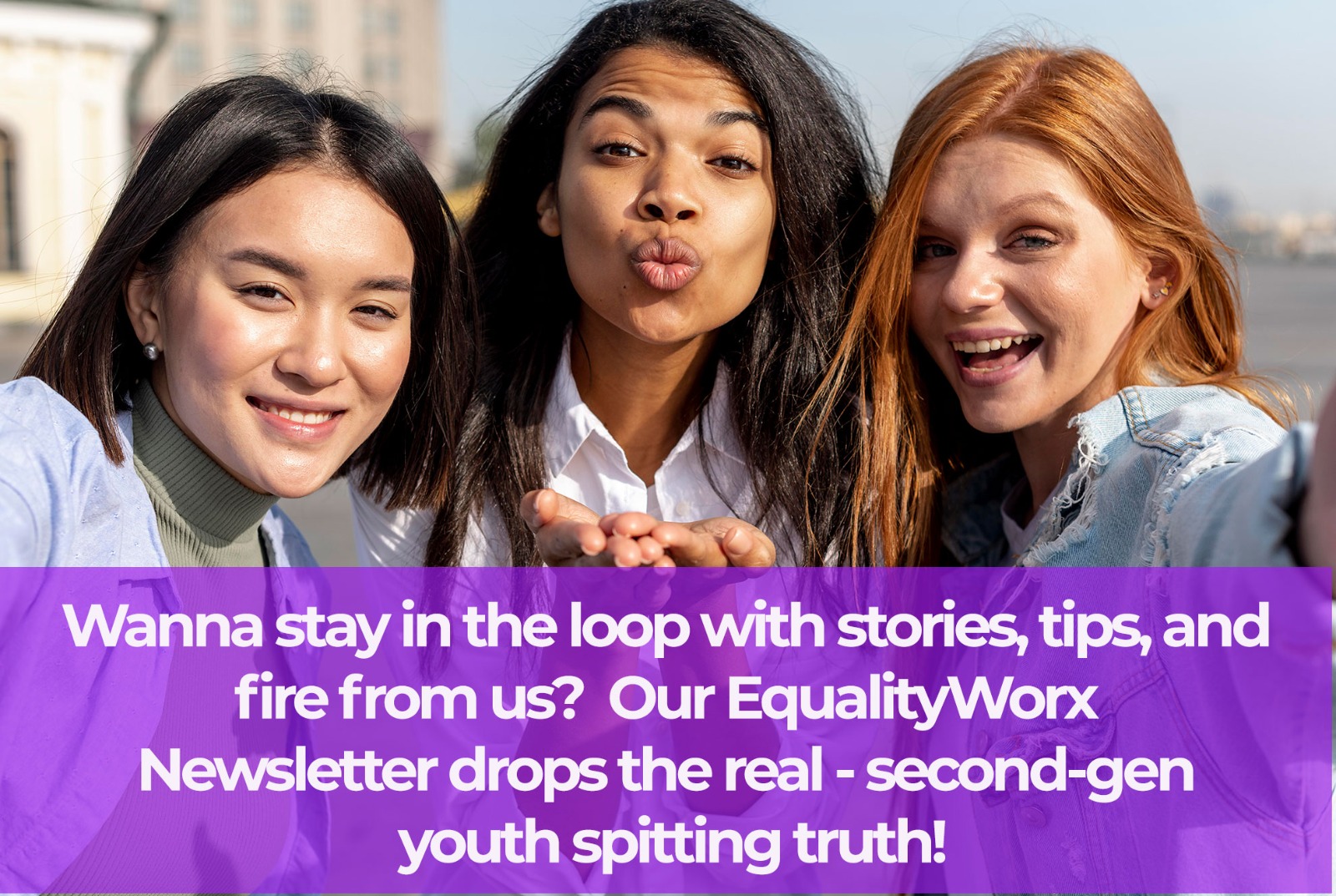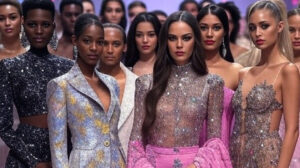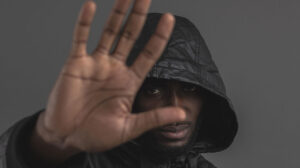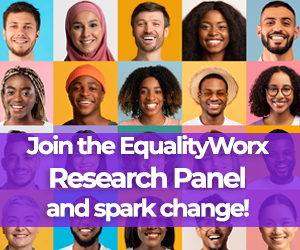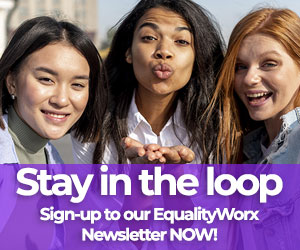What’s up, EqualityWorx fam?, Ask an Irish Gen Z’er who they trust for news, advice, or even just a laugh, and you’ll get a playlist that’s as eclectic as a late-night bus ride through Dublin: a few mates on WhatsApp, a viral TikTok from Garron Noone, a headline from RTÉ, and maybe a meme from Fionnuala Jay. Channel 4’s “Gen Z: Trends, Truth and Trust” research1 spells it out: this generation is building their own personal mixtape of truth, mixing friends, influencers, and mainstream media with almost equal confidence – and sometimes, equal skepticism.
But what does this mean in an Irish context, where UK and Irish media blend seamlessly and where homegrown creators are as likely to shape the narrative as the national broadcaster? And what happens when the pressure to be “trusted” online takes a toll on the very people Gen Z turns to for guidance?
The Playlist Generation: Building Truth One Scroll at a Time
Channel 4’s study reveals that Gen Z doesn’t see one source as the ultimate authority. Instead, they’re “magpies,” picking up bits from everywhere – TikTok, Instagram, WhatsApp, RTÉ, BBC, and even the odd YouTube deep-dive. For older generations, the news hierarchy was clear: the national broadcaster sat at the top. For Gen Z? A friend’s Instagram story, a Michael Fry sketch, or a TikTok explainer from Nia Gallagher can carry as much weight as a panel of experts on Prime Time.
The numbers back it up: 43% of Gen Z say they trust friends’ social media posts, 39% trust influencers and internet personalities, and 38% trust mainstream outlets like the BBC or RTÉ – almost no gap at all. That’s a world away from older generations, who still put the most faith in traditional news.
Irish Influencers: From Craic to Credibility
Tadhg Fleming’s family sketches can break down a news story with more impact than a government campaign. Sinéad Burke uses her platform to challenge how we see disability, fashion, and inclusion, often reaching young people in ways official campaigns never could. Michael Fry (Rory O’Connor) can turn a dry political scandal into a viral sketch that lands harder than any newspaper editorial. Fionnuala Jay mixes pop culture commentary with sharp, honest opinions on everything from mental health to Irish politics. Nia Gallagher’s TikTok explainers on climate, social justice, and Irish history are as informative as they are entertaining. For second-gen Irish youth, the list grows even more diverse. Ola Majekodunmi brings the Irish language and multicultural identity together, while Zainab Boladale, the first black woman to present on RTÉ’s Nationwide, is redefining what trusted voices look and sound like in Ireland.
When Trust Gets Heavy: The Garron Noone Story
But there’s a flip side to being a trusted voice. Garron Noone, known for his hilarious food reviews and “sound lad” energy, is a prime example. After building a massive following on TikTok, Garron faced a wave of online backlash, enough to make him step away from the platform for a while. He spoke openly about the mental health toll of being in the spotlight, reminding us that trust and influence come with real pressure. His experience is a wake-up call: in a world where everyone’s a potential “source,” the line between public and private, performance and real life, gets blurry. For creators, the weight of being “trusted” by thousands – or millions – can be overwhelming. For followers, it’s a reminder that the people behind the content are just that: people, with their own struggles and limits.
The Trouble with Trust
So, with so many voices, who’s right? Channel 4’s report notes that Gen Z’s playlist approach is creative, but it also means truth is up for grabs. If everyone’s a little biased, can anyone be truly trusted? Gen Z are experts at sniffing out agendas – whether it’s a brand, a broadcaster, or an influencer with a #ad. But that can also lead to confusion, skepticism, and sometimes, just switching off entirely. It’s not that Gen Z don’t care about facts – they do. But they want context, authenticity, and a sense that the person talking to them “gets it.” That’s why a TikTok from a second-gen creator about Direct Provision might feel more real than a politician’s speech or a formal news report.
Ireland’s Flat Trust Hierarchy: The Upsides and the Risks
In Ireland, where UK and Irish media intermingle, the lines are even blurrier. You might get your news from RTÉ, your memes from British Twitter, and your hot takes from a Cork comedian – all in the space of a morning. For second-gen youth, the mix is even richer: international news from home, Irish headlines, and a global TikTok feed. This flat hierarchy of trust has upsides. It means more voices, more perspectives, and a healthy skepticism toward anyone claiming to have “the truth.” But it also means misinformation can spread fast, and important stories can get lost in the noise. The Channel 4 report warns that while Gen Z’s “magpie” approach allows for creativity and self-expression, it can also make it harder to build consensus or even agree on basic facts.
The Mental Health Factor: Why Trust Needs Care
The pressure to be authentic and “on” 24/7 is real, especially for creators. Garron Noone’s break from TikTok is just one example of how the demand for constant content – and the expectation to be both entertaining and trustworthy – can take a toll. The Channel 4 report highlights that declining happiness and growing mental health struggles are shaping Gen Z’s outlook, with personal wellbeing often taking priority over bigger societal issues. For followers, it’s a reminder to be kind, to check in on the people behind the posts, and to remember that trust is a two-way street. For creators, it’s a call to set boundaries, take breaks, and put mental health first – even if it means stepping away from the spotlight.
Who Do You Trust? Let’s Build the New Playlist
Here’s the real question: who do you trust? Is it a TikToker, a journalist, your mam, or your mates? How do you decide what’s real, what’s hype, and what’s just noise? And if you’re second-gen, who are the voices that help you make sense of Ireland today?
At EqualityWorx, we want to build a new kind of trust – one that’s as diverse, creative, and real as Gen Z itself. Share your own “trusted sources” at equalityworx.com/submit (300–500 words) or drop a TikTok with #EqualityWorxVibe and tag @EqualityWorx. Let’s make sure the next chapter of Irish media is written by all of us, together. Because in the end, trust isn’t about picking one voice. It’s about building a community where everyone has a say – and where the truth is something we create, question, and care for together.
Share this content:
Join the EqualityWorx Vibe!
